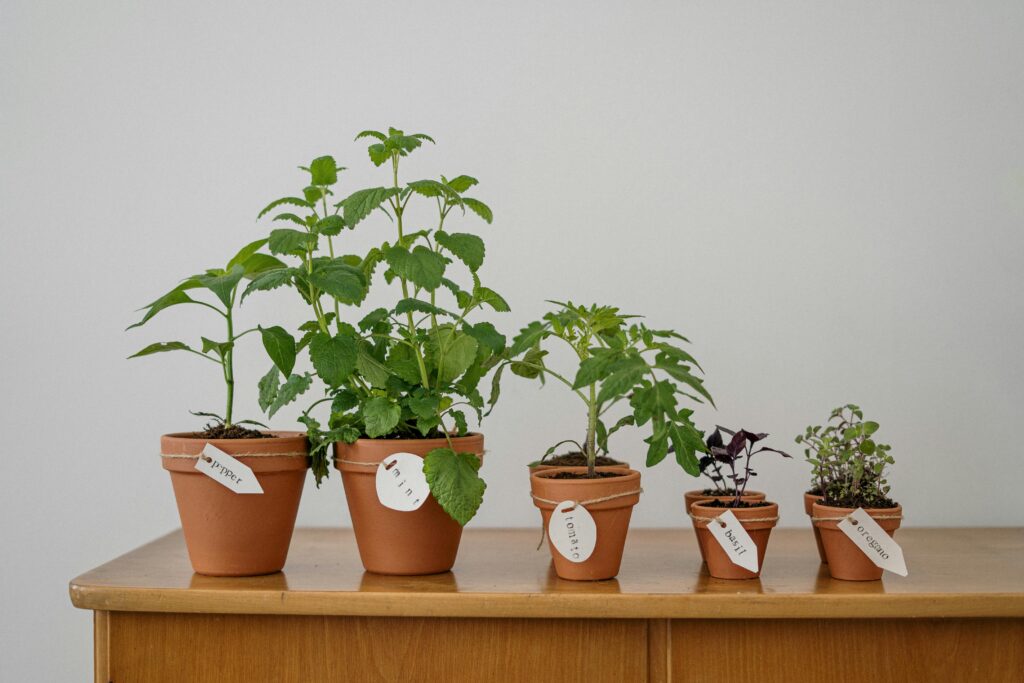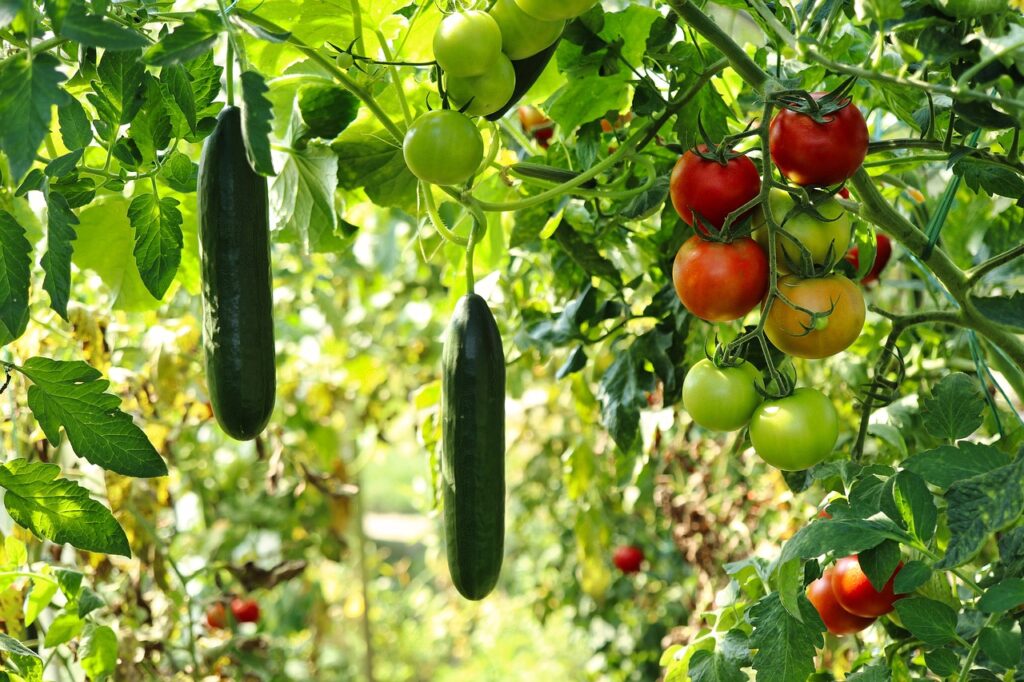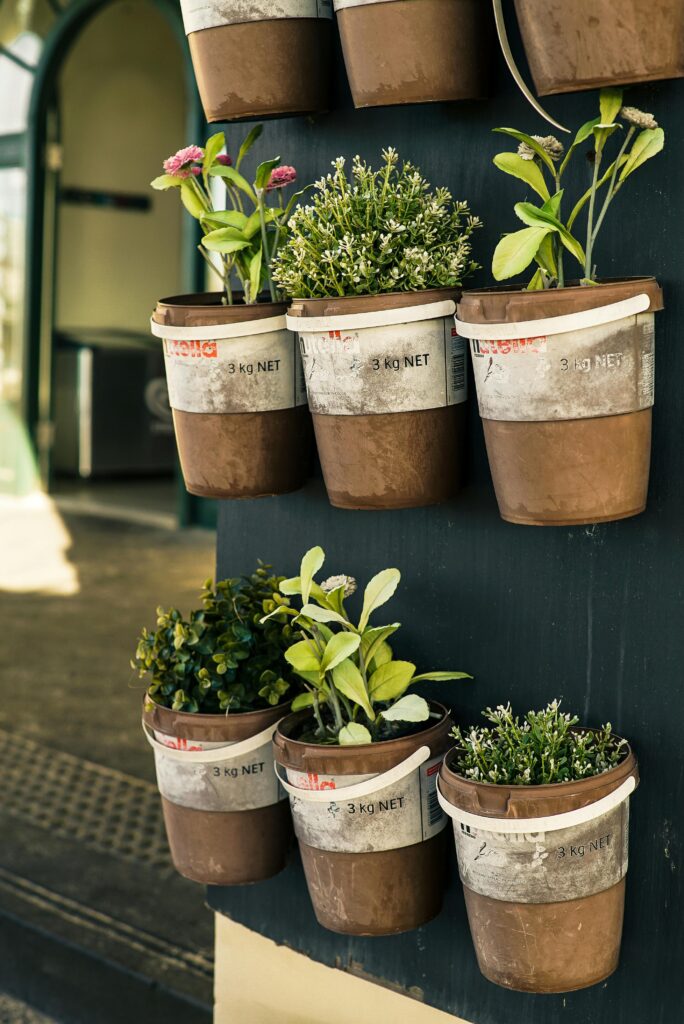The Benefits of Growing Your Own Herbs and Vegetables at Home

In recent years, there has been a growing trend towards home gardening, especially as more people seek to adopt sustainable living practices. Growing your own herbs and vegetables at home not only offers a chance to eat healthier but also provides numerous environmental, economic, and mental health benefits. Whether you have a large backyard, a balcony, or even just a windowsill, it’s easier than ever to start your own garden and enjoy the rewards of homegrown food.
This guide will explore the many benefits of growing your own herbs and vegetables at home, along with tips for getting started, whether you’re a seasoned gardener or just a beginner.
Why Grow Your Own Herbs and Vegetables?
Growing your own produce offers numerous advantages. Let’s take a closer look at some of the key benefits:
1. Healthier, Fresher Produce
When you grow your own herbs and vegetables, you have complete control over how they are cultivated. You can choose to grow them organically, avoiding harmful pesticides and chemicals that are often used in commercial farming. Freshly picked herbs and vegetables are not only tastier but also packed with nutrients that start to degrade once the produce is harvested and shipped.
Key Benefits:
- No pesticides or chemicals: Growing your own means you can skip harmful sprays, ensuring a healthier harvest.
- Full nutritional value: Fresh, homegrown produce retains more of its vitamins, minerals, and antioxidants than store-bought vegetables, which can lose nutrients during transportation and storage.
2. Reduce Your Carbon Footprint
One of the most significant environmental benefits of growing your own food is the reduction in your carbon footprint. Commercial farming and the transportation of food contribute significantly to greenhouse gas emissions. By growing your own vegetables and herbs, you eliminate the need for long-distance food transport, packaging waste, and the associated carbon emissions.
Impact on the Environment:
- Less transportation: Home gardening reduces the need for food to be shipped across the globe, which helps to lower fossil fuel consumption.
- No plastic packaging: By growing your own herbs and vegetables, you can skip the plastic packaging commonly used in grocery stores.
3. Cost Savings
While there is an initial investment in seeds, soil, and gardening supplies, growing your own herbs and vegetables can save you money in the long run. Fresh herbs from the store can be expensive, and buying organic vegetables can add up quickly. When you start growing your own food, you reduce your dependence on store-bought products, which will cut down on your grocery bill.
Potential Savings:
- Less grocery spending: Herbs and vegetables, especially organic ones, can be pricey. Growing them at home allows you to save money on your weekly grocery trips.
- One-time investment: The initial cost of setting up a small garden is relatively low, and the savings over time are significant.
4. Promote Sustainability
Growing your own herbs and vegetables supports sustainability by promoting the use of local resources. You are less reliant on industrial agriculture, which often involves heavy use of water, chemical fertilizers, and monoculture practices. Additionally, many home gardeners use composting to recycle kitchen waste, further reducing their environmental impact.
Sustainable Practices:
- Composting: By composting kitchen scraps and plant waste, you create nutrient-rich soil for your garden while reducing landfill waste.
- Water conservation: You have the ability to use water more efficiently, avoiding the excessive water consumption that large-scale farms can create.
5. Stress Relief and Mental Health Benefits
Gardening has been shown to provide numerous mental health benefits. The act of planting, tending to, and harvesting from your own garden can be meditative and rewarding. Studies have found that spending time in nature or even engaging in gardening activities can lower stress levels, improve mood, and increase feelings of accomplishment.
Mental Health Benefits:
- Reduced stress: Gardening can serve as a form of mindfulness, helping to alleviate anxiety and promote relaxation.
- Improved mood: Many gardeners report a sense of fulfillment and happiness that comes from watching plants grow and thrive.
- Sense of accomplishment: Growing your own food gives you a tangible sense of achievement and connection to nature.
How to Start Your Own Herb and Vegetable Garden
If you’re convinced of the benefits of home gardening and are eager to get started, here are some simple tips to help you begin your journey.
1. Assess Your Space
The first step to starting a home garden is assessing the space available to you. Whether you have a backyard, a small balcony, or even just a windowsill, there’s always an option for growing your own herbs and vegetables.
Considerations for Growing Space:
- Backyard: If you have access to a backyard, you have the flexibility to grow a wide variety of vegetables and herbs. You can start with a small raised bed or even plant directly in the ground.
- Balcony or Patio: For apartment dwellers, container gardening is an excellent option. You can grow herbs and smaller vegetables in pots or hanging baskets on your balcony or patio.
- Windowsill: Even if you live in a small apartment with no outdoor space, you can still grow herbs like basil, mint, or chives on your windowsill. Choose herbs that thrive in smaller spaces and with limited sunlight.
2. Choose the Right Plants for Your Climate
The next step is to choose the right herbs and vegetables for your garden based on your location and growing conditions. Consider factors such as sunlight, temperature, and space requirements when selecting plants. For example, herbs like rosemary and thyme need full sunlight, while leafy greens such as spinach and lettuce can tolerate partial shade.
Start your own DIY herb and vegetable garden with these sereniseed Certified Organic Vegetable Seeds (10-Pack) – Non GMO, Open Pollinated – Basil, Snap Pea, Broccoli, Bean, Jalapeno, Tomato, Lettuce, Cucumber, Carrot, Zucchini Seeds for Planting.
Climate Considerations:
- Temperature: Check your local climate and growing zone to determine which vegetables and herbs are best suited to your area. Some plants, like tomatoes and peppers, require warm temperatures, while others, like kale and cilantro, thrive in cooler climates.
- Sunlight: Most vegetables and herbs require at least 4-6 hours of direct sunlight each day. Make sure your chosen space receives enough sunlight or invest in grow lights if necessary.
3. Use Sustainable Gardening Practices
To make your home garden as eco-friendly as possible, consider incorporating sustainable practices into your gardening routine. These practices not only reduce your carbon footprint but also help your plants thrive.
Sustainable Tips:
- Composting: Composting kitchen scraps such as vegetable peels, coffee grounds, and eggshells helps reduce waste and provides nutrient-rich soil for your garden. Find your Kitchen compost bin here.
- Rainwater harvesting: Set up a rainwater collection system to water your plants naturally, saving on water bills and reducing your environmental impact.
- Organic gardening: Avoid synthetic pesticides and fertilizers. Instead, use organic alternatives like neem oil, compost tea, and companion planting to control pests and improve soil health.
4. Start Small and Build Gradually
If you’re new to gardening, it’s a good idea to start small. Begin with a few easy-to-grow herbs like basil, parsley, or mint, and once you’re comfortable, gradually expand to vegetables like tomatoes, peppers, or spinach. Starting small helps you learn the basics of gardening and gives you the opportunity to experiment and refine your skills.
Simple Starter Plants:
- Herbs: Basil, mint, chives, parsley, and thyme are all relatively easy to grow indoors or on a balcony. Ready to start? Get your 12 Herb Seeds Variety Pack, 6000+ Heirloom Seeds for Planting here.
- Vegetables: Leafy greens like spinach, lettuce, and arugula grow quickly and can be harvested multiple times during the growing season. Ready to start? Get your Back to the Roots Organic Seed Bundle – Herbs and Vegetables Variety Pack for Planting here.
5. Maintain Your Garden
Once you’ve planted your herbs and vegetables, the next step is to maintain your garden. This involves regular watering, pruning, and pest management.
Gardening Maintenance Tips:
- Watering: Be mindful not to overwater your plants. Herbs and vegetables typically prefer consistent, moderate moisture. Check the soil’s moisture level before watering, and ensure your containers have proper drainage.
- Pruning: Prune your plants regularly to encourage healthy growth and to prevent overcrowding. For herbs, this also prevents them from becoming leggy. Find your pruning scissors here.
- Pest Control: Keep an eye out for pests such as aphids or snails. Use natural pest control methods like neem oil or introducing beneficial insects like ladybugs.
Creative Ideas for Growing Herbs and Vegetables at Home

Here are a few creative ways to grow your own produce in small spaces:
- Vertical Gardens: Utilize vertical space by growing plants in stacked containers or using wall-mounted planters. This is perfect for small balconies or apartments.
- Hanging Gardens: Use hanging baskets or mason jars to grow herbs like basil, mint, or thyme. Hang them from your ceiling, balcony railings, or kitchen hooks.
- Indoor Garden Towers: Create a multi-level garden tower using recycled materials. These towers can house various vegetables and herbs and are great for maximizing space in small areas.
- Hydroponic Systems: For those looking to grow indoors year-round, hydroponics offers a soil-free option that uses nutrient-rich water to grow plants. These systems are often compact and can fit into apartments or homes with limited space.
Conclusion: The Rewards of Growing Your Own Herbs and Vegetables

Growing your own herbs and vegetables at home offers a wealth of benefits, from eating healthier to reducing your carbon footprint. Whether you have a sprawling backyard, a small balcony, or just a windowsill, there are countless ways to start your own home garden. The sense of accomplishment you get from growing your own food, coupled with the environmental, economic, and mental health benefits, makes home gardening an incredibly rewarding and sustainable activity.
By starting small, choosing the right plants for your space, and using sustainable gardening practices, you can enjoy fresh, organic herbs and vegetables all year round—while also contributing to a more sustainable and eco-friendly lifestyle.
References:
- The Green Thumb: Sustainable Gardening for Beginners, Eco Gardening Press, 2023.
- Urban Farming for Small Spaces, Green Living Journal, 2024.
- Organic Gardening Handbook, Sustainable Agriculture Network, 2023.
- Gardening for the Planet: How Growing Your Own Can Save the Earth, EcoLife, 2024.
As an Amazon Affiliate, we earn from qualifying purchases, at no cost to you.
